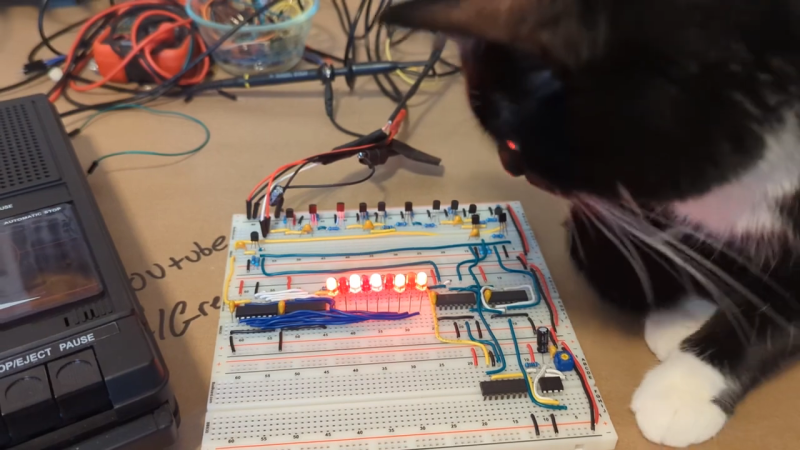Computer enthusiasts have not stored their programs and data on cassette tapes for a long time. However, since floppy disk drives are expensive peripherals, and hard disk drives are still a long way from current commodities, tape has long been in the lead on the top of large capacity data storage stacks.
The idea behind [Greg Strike]’s Kansas City decoder project is to celebrate this success by exploring box data storage technology. He hopes to use this project with his [Ben Eater] style 6502 computer. The following video explains the standards of Kansas City in detail, and contains some interesting historical background, which we have never studied in depth before. The modulation scheme used by KCS also has some good technical details, which [Greg] built on. After his attempt to use the LM567 audio decoder chip failed, he stumbled upon [matseng]’s KCSViewer project, which only uses discrete components to decode KCS encoded audio signals.
The prototype of [Greg] has a comparator that can convert the sine wave into a square wave, and then a pair of monostable timers. Each timer can be tuned to the high or low frequency defined in the KCS specification. Use the test signal created by Audacity – what can’t be done? The successful decoding provides proof of concept for the first phase of the project. We look forward to the rest of this series, which will turn it into a real decoder and possibly add an encoder.
The audience of Hackaday Podcast may remember that a few months ago, we tried to use KCS to hide some data in one episode.
